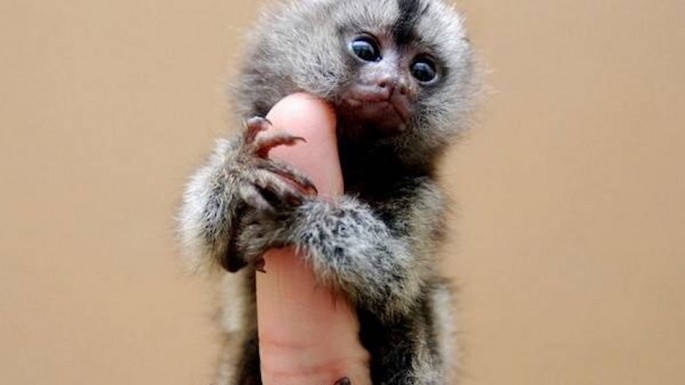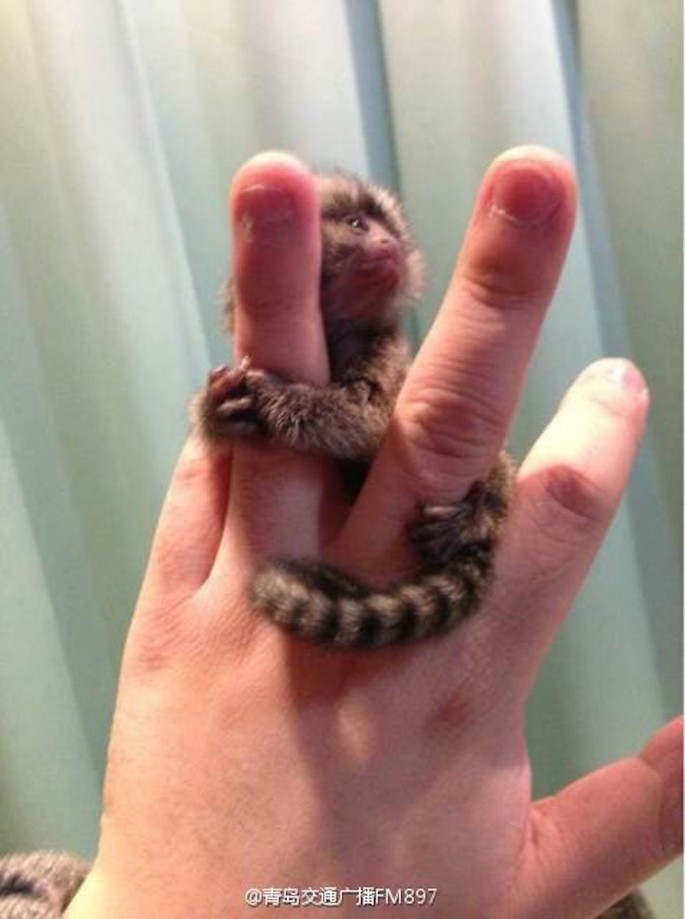Despite the pygmy marmoset, now known as “thumb monkey,” listed on the International Union for Conservation Nature’s list of endangered species, the tiny animal is now considered the “in” pet for rich Chinese.
The smallest primate – with a body size from 5.5 to 6.3 inches – is in demand on the black market and commands a price of up to $4,500, or 30,000 yuan, which the wealthy do not mind because the marmoset is an appropriate personal pet for the Year of the Monkey, reported Mashable. The tiny primate got its name “thumb monkey” from its size and weight, a maximum of 4.9 ounces.
The pygmy marmoset is endemic to western Amazon rainforest such as in Brazil, Ecuador, Peru, Bolivia and Colombia. According to Factzoo, when in the wild, the pygmy marmoset ran like squirrels on its habitat and drink the sap of trees. The animal climbs acacia trees very high up to search for untapped sources of food such as sap and gum from slender branches that bigger primates would not reach without risking falling. The tiny primate also eat grasshoppers and other insects that are available.

However, a number of them are not only in China but also grace the pages of Weibo after it became a trend among owners to post the images of the “thumb” monkey on social media. Of course, just the digits of the pet owner, because owning one is illegal and the owner would not risk penalty by posting his or her face.
It is easy to hide the pet from authorities not only because of its small size, but it also does not make shrill noises. Rather, the pygmy marmosa makes high-pitched clicks, whistles, trills and squeaks, or noises that are so high pitched forms of calls to indicate to other monkeys that it is in danger but not audible to human ears.



























